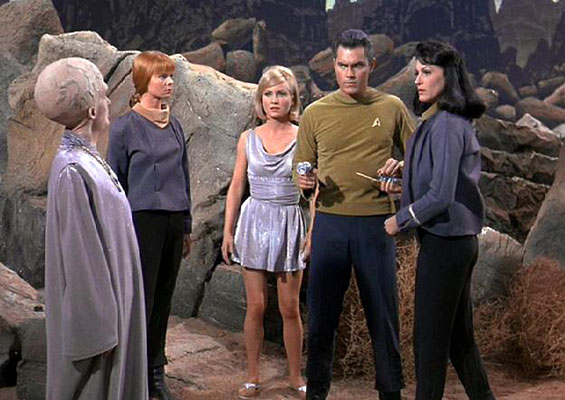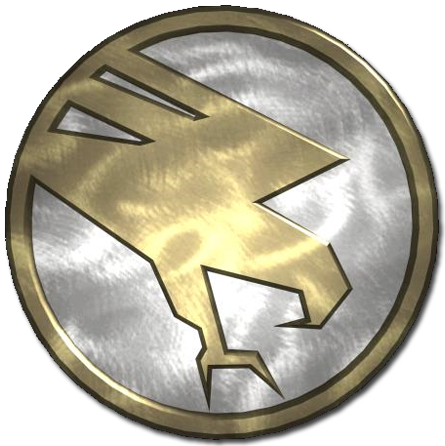-
Posts
1,645 -
Joined
-
Last visited
-
Days Won
1
Content Type
Profiles
Forums
Events
Downloads
Posts posted by Jean-Luc
-
-
I like it! Not much else to say really.
I always thought the little dog fight cut scenes in UFO: Aftermath were pretty cool and if you could couple something like that with actual tactical decisions it could work out really well imo.
For reference:
Edit: Just one more thing Chris, don't release it around the time XCOM2 comes out.

-
Caesans - Addition of "utility psionics" would be great imo.
Androns - I remember Nod Cyborgs in Tiberium Sun would lose their legs and continue crawling after taking a lot of damage, it was both funny and cool. Thus Androns could lose mobility and accuracy but become more difficult to hit due to being "prone". Would be kinda ironic that getting their legs blown off is the only way for them to take cover.
Reapers - Acid blood could be a nice addition. Sprays a few squares/hexes away after a Reaper is killed.
I also like the idea of companion entities like light suppression drones following a frontline type of alien. Or "alien dogs" being used by Sebillians to track Xenonauts or get bonus to reactions because their pets warn them of danger. Alien medical/repair drones could be great as well.
Something more bizarre is needed though, like a Silacoid or something tentacled. Maybe a "brood mother" type of alien that constantly produces weak combatants requiring you to find and kill it to stop the flow. Add a bit of urgency.
Or an artillery type of alien that constantly harasses you from afar by dropping "spore clouds". Not very damaging but forces you to change position and take different routes.
-
I would really like to see the Non-Aligned Movement represented here: https://en.wikipedia.org/wiki/Non-Aligned_Movement Neutral territory that both NATO and USSR vie for. It would provide a form of indirect competition.
As far as more direct competition goes it could be possible for rival strike teams to meet at the same crash or terror site. Depending on relations either could enjoy the support of any local forces. Rationale would be that this is a covert war and is kept as such to avoid all out war between NATO and USSR with both nevertheless using deadly force against each other in smaller skirmishes to obtain alien artifacts and resources.
It'd be ideal if some sort of diplomacy could be inserted here with options to ask the opposing team to leave (the better your relation with the locals the better the chance that the rival team will comply), to share the loot (easier mission but less reward), pay them off maybe (not necessarily using money but alien materials or fuel). The outcome of these parleys would partially be random but would also depend on relations and the balance of forces.
There could even be propaganda elements here like the other team doesn't interfere and you get all the loot but they get the credit for it so the relation bonus goes to the other side.
-
In case anyone cares there's an ongoing Kickstarter by Adam Nimoy (Leonard Nimoy's son) to film a documentary about his father: https://www.kickstarter.com/projects/adamnimoy/for-the-love-of-spock-a-documentary-film
If you're a fan consider supporting it.
-
GOG streaming Xnauts right now: http://www.twitch.tv/gogcom
There's always the archive if you're late.
-
Really interesting ideas there Chris.
Maybe you could have a set "counter-attack pool" (cap) of troops with a % chance that some of those troops will be diverted to reinforce afflicted targets in the city thus allowing attrition to still play some role in the final showdown. It should still be a cost inefficient way to prepare for the end.
For example targets in the city could be categorized according to priority level.
High Priority: HQ facilities, communication relays, heavy weapon emplacements, large factories, the power grid, etc.
Medium Priority: troop barracks, vehicle garages/hangars, supply depots, smaller factories and gun emplacements, etc.
Low Priority: check points, road blocks, patrols, "police" and so on.
The higher the priority the higher the chance that some troops will be diverted from the cap to replace loses inflicted by the Pathfinders. A degree of randomness here would make it so each play through goes a little differently. Destroying vital targets would still accomplish a lot more than random killings.
You could even have a strategy based on "terror attacks" where you attack civilian targets and emergency services which drains the cap a lot more as the enemy desperately tries to secure civilian lives and infrastructure but it expends precious time that could've been used on military targets. Essentially you choose and mix between depriving the enemy of troops (quantity) or "special powers" and fire support provided by the military infrastructure (quality).
In the end you could even get a rating ranging from "honorable conqueror" to "war criminal" depending on your choice of military vs. non-military targets. But maybe that'd be too politically incorrect.

Also, difficulty levels could affect the size of the cap.
-
-
I like their "board game" accuracy calculation - basically the Accuracy of the soldier is their chance to hit, then you get flat additions and subtractions based on wargear and enemy cover etc.
I just hope you can avoid XCOM's "LoS magic" where all that matters are points A and B (shooter and target) while the ballistic implications of things in between get neglected.
-
The other one is, I think at least but can't remeber for sure, of the pilot with Captain Pikes where Spock had to "press the three topmost stars" on a panel to open a door.
That was the rejected pilot "The Cage" although scenes from it were later used in one of the ToS episodes.

It had that sassy dance scene, good stuff.
[video=youtube;5dNGU772_cI]
I honestly don't remember my first ToS ep, I was so young. It might have even been one of the movies. I couldn't even speak or understand English when I watched ST for the first time, just a kid staring at imagery.
-
-
Awesome, thanks everyone.
-
...so we're hoping to officially release it in the next month or two.
Do you mean announce?

-
'Cause Cain's a filthy alium and we don't take kindly to those 'round here.
-
Goldhawk is a great name, the logo has a very positive association in gaming.


-
Isn't XCOM pretty much known to be an overwatch fest? It's precisely the inability to move after shooting that encourages camping so much.
JA2's combat system is very detailed yes but I'd never call it clunky. That game is mostly slowed down simply by being a very long game and having a large world map. Other culprits are civilian AI taking long turns sometimes and lots of inventory shuffling but combat itself was never a problem imo. If anything it encouraged being active in battle and trying to get a good position because getting into a war of attrition where you just shoot at each other from cover or prone positions did not favor the player (except on beginner difficulty maybe). Interruptions and reaction fire are pretty much a must in a game like that to prevent the very exploits Chris mentioned as well as add an element of risk and tension to movement and place importance on good line of sight and information gathering. It was all tied in with the time of day, weather, terrain, equipment, camouflage, type of movement, etc.
Oh and thanks for the cover info.

-
While the exploit potential of move-shoot-move is obvious I'm not sure it manifested itself in JA2 all that much. Interrupts, as they were called, in JA2 had no accuracy penalties and they also allowed you to do anything you wanted, like move away or take cover, not just shoot. Also, any action could trigger them so in the very least you exposed yourself to reaction fire twice, moving around the corner and then when shooting and a third time if you chose to move back around the corner or behind a wall. Doing that would also almost always leave you open with no cover and getting shot, in that game at least, was pretty serious.
Mostly I considered corners a hazard in JA2 rather than opportunity for exploits. The worse exploit was probably shooting from behind a window crouched and then going prone since it gave you the benefit of shoot-move while still leaving you in cover. It was also a lot more situational though. Exploits or no exploits JA2 isn't considered an easy game I don't think.
In any case there's no reason why the two action system can't be fun. I liked it in Temple of Elemental Evil for example while combat in XCOM was mostly just adequate for me (but that may be due to reasons other than its move/shoot combat rules).
What about cover Chris? Actual cover that blocks shots or abstract bonus to defense?
-
It's not about the size, it's about how many heretics you exterminate with it.
-
Quick everyone, Pancakes is coming! We need to escape. Someone set off the fire alarm

Dammit, someone burned down the fire alarm! If irony was bullets... *Commisar walks in* BLAM! BLAM!! BLAM!!!

-
To be fair, that research seemed mostly related to music. It's not necessarily the same for games which probably don't rely as much on piracy advertising due to Steam, LPs, youtube in general, mainstream (p)reviews, etc. Granted, music has all these things as well but they don't seem as effective and small bands seem to have more trouble breaking through than indie developers for example. Maybe it's simply a matter of quantity and the fact that gamers are more "internet proficient".
-
Wow, among all the AAA and other popular titles Xenonauts is leading in two states. Quite a compliment.

-
Australian treachery. When the next invasion hits they might find their terror sites accidentally ignored.
-
Camping? Is that like a euphemism for mass murder? And 'candies' are heretics I suppose.
-
can anyone do some you tube art of a fancy sectoid?
Pirate or Pimp?



-
Why would the aliens have millions of planets? Maybe they only have a single homeworld like us or with a few colonies here and there.

.jpeg.1a6f006a9bf1dc6d42f4352bb8c6d23f.jpeg)


Xenonauts 2 - Rethinking the Strategy Layer
in Xenonauts 2 Discussion / Suggestions
Posted
You're interpreting it too literally. Chris's proposal has quite a few additional gameplay mechanics meaning combat couldn't look like that vid even if he wanted to.